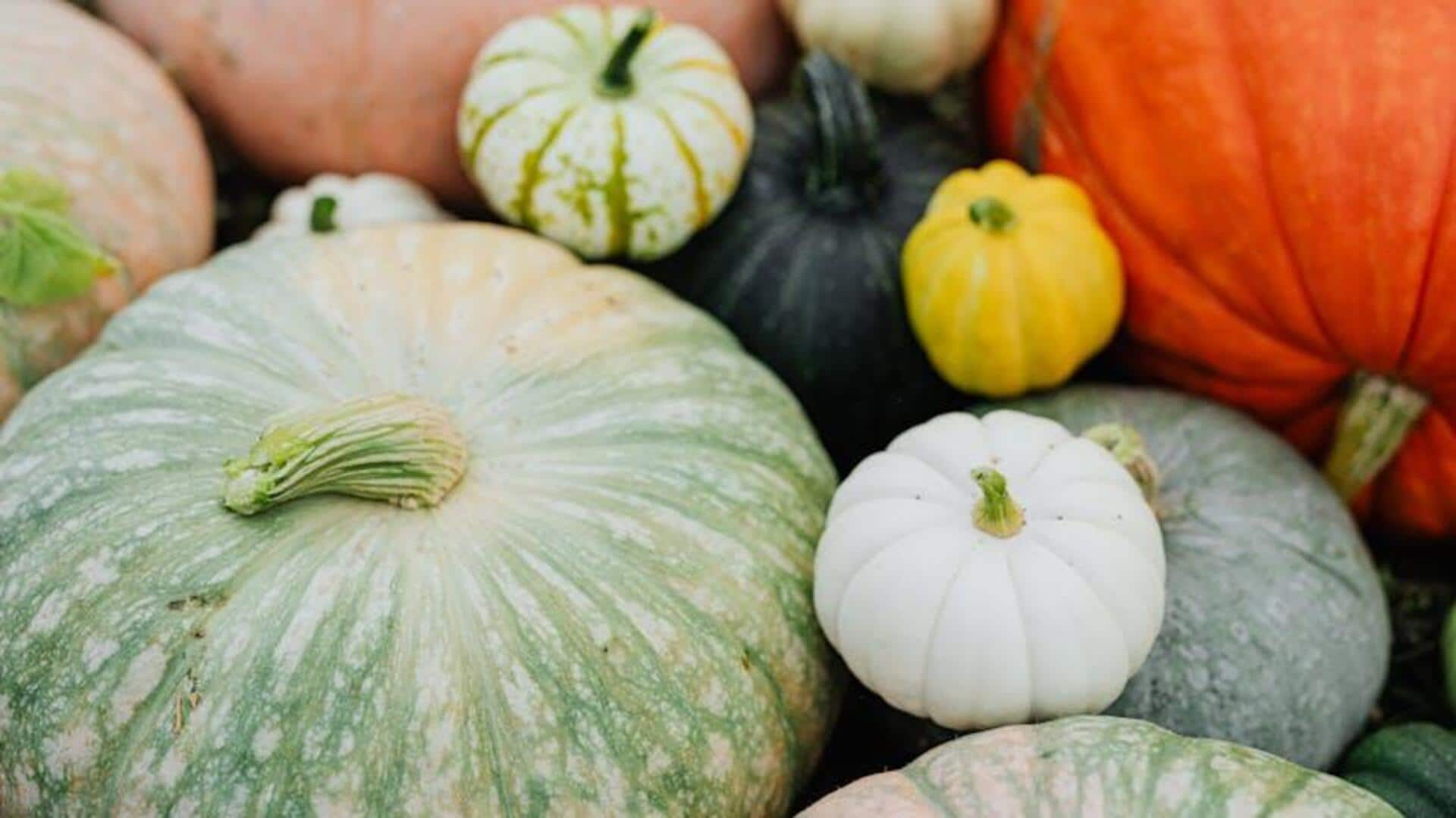
Pumpkin v/s butternut squash: Which is healthier?
What's the story
Pumpkin and butternut squash are two of the most common choices in several kitchens, particularly in the fall season. Both are members of the gourd family and are rich in flavor and nutrition. In this article, we explore the key vitamins and nutrients in both these vegetables. We give you an easy comparison to better understand their health benefits.
Vitamin A
Vitamin A content
Pumpkin is famous for being rich in vitamin A, with just a cup supplying more than 200% of the daily intake. The vitamin is important for healthy vision, immune function, and skin health. Butternut squash also has vitamin A, albeit in slightly lesser quantities than pumpkin. However, it still supplies a major chunk of your daily requirement, making both veggies great sources of the nutrient.
Fiber
Fiber benefits
Both pumpkin and butternut squash are rich sources of dietary fiber, which promotes digestion and keeps you feeling full, hence, helping you maintain a healthy weight. Butternut squash is rich in fiber, containing about three grams per cup, while pumpkin offers about two grams per cup. Having either vegetable in your diet can do wonders for your digestive health.
Vitamin C
Vitamin C levels
Vitamin C is critical for immune support and skin health. Butternut squash offers roughly 30% of the daily recommended intake per cup, while pumpkin provides roughly 20%. Although both vegetables help you meet your vitamin C intake, butternut squash has the slight upper hand in this department.
Potassium
Potassium content
Potassium is essential for your heart health and maintaining proper muscle function. While both pumpkin and butternut squash are good sources of potassium, the latter has higher levels (around 582 milligrams per cup) compared to pumpkin (394 milligrams per cup). Adding these vegetables can help you meet your potassium requirements without any hassle.